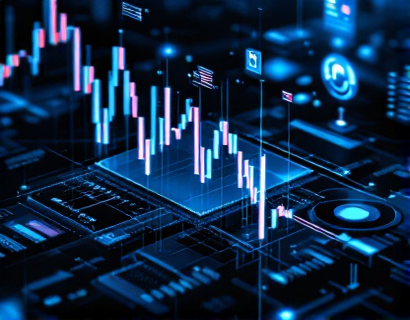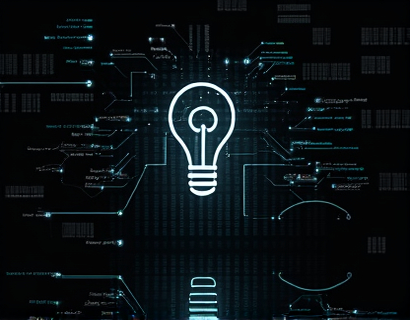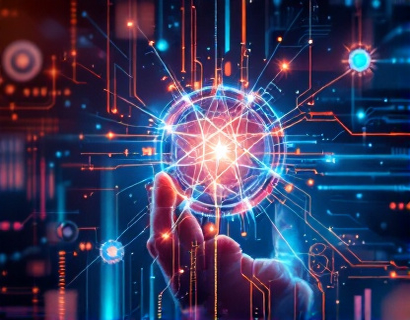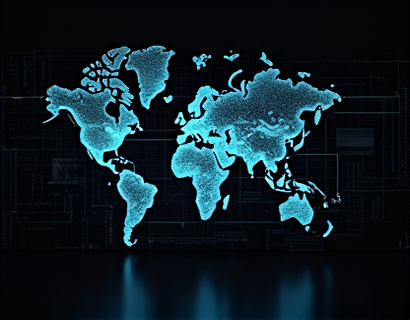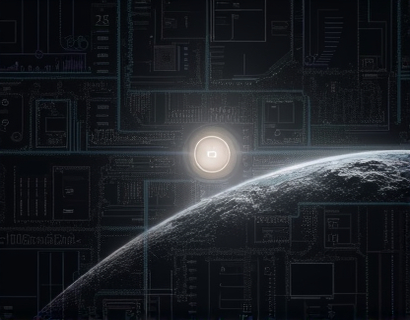Maximizing Digital Engagement in the Ucosystem: Leveraging AI and Crypto for Enhanced App Experiences
The digital landscape is rapidly evolving, driven by advancements in artificial intelligence and blockchain technology. These innovations are reshaping the way we interact with applications and services, creating more immersive, secure, and personalized experiences. This article delves into the transformative power of AI and crypto in enhancing Ucosystem app experiences, offering tech enthusiasts and professionals valuable insights into the future of digital solutions.
The Ucosystem, a term used to describe the interconnected network of applications, services, and devices that leverage AI and blockchain, is at the forefront of digital transformation. By integrating these technologies, developers can create apps that not only meet current user needs but also anticipate future demands. The synergy between AI and crypto enables the development of apps that are more secure, efficient, and engaging.
Enhancing Security with Blockchain
One of the most significant advantages of blockchain technology is its ability to enhance security in digital environments. Traditional app development often grapples with issues such as data breaches, unauthorized access, and fraud. Blockchain's decentralized and immutable ledger provides a robust solution to these challenges.
By storing data on a blockchain, apps can ensure that user information is tamper-proof and transparent. Smart contracts, self-executing contracts with the terms directly written into code, automate and enforce agreements without the need for intermediaries. This not only reduces the risk of fraud but also streamlines processes, making transactions faster and more reliable.
For instance, in financial apps, blockchain can facilitate secure and instant cross-border transactions, eliminating the need for intermediaries like banks. This not only reduces costs but also speeds up the transaction process, enhancing user experience. In health apps, blockchain can secure patient data, ensuring privacy and compliance with regulations such as GDPR.
Personalization through Artificial Intelligence
AI plays a pivotal role in personalizing user experiences within the Ucosystem. Machine learning algorithms analyze user behavior, preferences, and patterns to deliver tailored content and recommendations. This level of personalization is crucial in keeping users engaged and satisfied with the app.
For example, streaming services use AI to curate playlists based on a user's listening history and preferences. E-commerce platforms employ AI to suggest products that align with a user's interests and past purchases. In social media apps, AI algorithms curate feeds that are most relevant to each user, keeping them engaged for longer periods.
Moreover, AI-powered chatbots and virtual assistants provide instant and personalized support to users. These AI-driven interfaces can understand natural language, recognize user intent, and respond accordingly, making interactions more seamless and efficient. This not only improves user satisfaction but also reduces the workload on human support teams.
Fusion of AI and Crypto: Decentralized AI
The combination of AI and blockchain gives rise to decentralized AI, a paradigm shift in how AI models are developed and deployed. Decentralized AI leverages the power of blockchain to create a more democratic and transparent AI ecosystem.
In a decentralized AI model, data is stored on a blockchain, ensuring it is secure and tamper-proof. AI models can be trained using data from multiple sources, without the need for a central authority to manage and control the process. This not only enhances data privacy but also promotes collaboration among developers and organizations.
Decentralized AI also addresses the issue of data bias, a common problem in centralized AI systems. By training models on diverse datasets from various sources, AI systems become more accurate and fair. This is particularly important in applications such as credit scoring, hiring, and law enforcement, where biased AI can have significant real-world implications.
Enhancing User Engagement through Gamification
Gamification, the application of game-design elements in non-game contexts, is another area where AI and crypto can significantly enhance user engagement. By incorporating elements such as rewards, challenges, and leaderboards, apps can motivate users to interact more frequently and deeply with the platform.
AI can personalize gamification elements to individual users, ensuring that the challenges and rewards are relevant and appealing. For example, a fitness app can use AI to track a user's progress and adjust the difficulty of workouts accordingly, while rewarding milestones achieved. Crypto can be used to tokenize these rewards, allowing users to earn and trade digital assets within the app ecosystem.
This not only increases user engagement but also fosters a sense of community and competition. Users are more likely to share their achievements on social media, driving organic growth for the app. Additionally, the use of crypto tokens as rewards creates a tangible value that users can retain and use across different services within the ecosystem.
Tokenomics and Incentive Structures
Tokenomics, the study of token economics, plays a crucial role in designing effective incentive structures within the Ucosystem. By creating and managing digital tokens, app developers can motivate users to contribute value to the platform.
For instance, in a decentralized social media platform, users can earn tokens for creating and sharing high-quality content, engaging with other users, and participating in community governance. These tokens can be used to access premium features, vote on platform decisions, or even traded for fiat currency or other cryptocurrencies.
AI can optimize these incentive structures by analyzing user behavior and adjusting token rewards dynamically. This ensures that the most valuable contributions are adequately rewarded, fostering a healthy and active community. Moreover, transparent and programmable smart contracts can automate the distribution of tokens, reducing the risk of manipulation and ensuring fairness.
Interoperability and Ecosystem Integration
Interoperability is key to the success of the Ucosystem. Apps and services within the ecosystem need to seamlessly interact with each other, allowing users to enjoy a cohesive and integrated experience. Blockchain technology, particularly through the use of cross-chain protocols, enables different blockchain networks to communicate and transfer assets and data.
AI can facilitate this interoperability by intelligently managing data and transactions across different platforms. For example, an AI-driven wallet can automatically convert tokens between different blockchains, ensuring a smooth user experience. This level of integration not only enhances user convenience but also expands the potential user base and application scenarios.
Furthermore, integrating AI and crypto enables the creation of decentralized marketplaces where developers can buy, sell, and trade AI models and data sets. This opens up new revenue streams and fosters innovation by allowing developers to build upon existing work, rather than starting from scratch.
Challenges and Considerations
While the potential of AI and crypto in enhancing Ucosystem app experiences is vast, there are several challenges and considerations that must be addressed. One of the primary concerns is regulatory compliance. The crypto space is still largely unregulated, and apps that incorporate blockchain technology must navigate a complex legal landscape.
Privacy is another critical issue. While blockchain offers transparency, it can also expose sensitive user data. Developers must implement robust privacy measures, such as zero-knowledge proofs and data encryption, to protect user information. Additionally, the environmental impact of blockchain, particularly proof-of-work consensus mechanisms, is a growing concern that needs to be addressed through more sustainable alternatives like proof-of-stake.
Technical complexity is another hurdle. Integrating AI and blockchain requires specialized knowledge and resources. Developers need to stay updated with the latest advancements and best practices to ensure their apps are secure, efficient, and user-friendly. Collaboration and knowledge sharing within the developer community can help overcome these challenges.
Future Outlook
The future of the Ucosystem is bright, with AI and crypto set to revolutionize digital experiences further. As technology continues to advance, we can expect more sophisticated AI models that can learn and adapt in real-time, providing even more personalized and intuitive user experiences.
Blockchain technology will likely evolve to become more scalable and energy-efficient, making it more viable for widespread adoption. The integration of AI and blockchain will also extend beyond apps to IoT devices, smart cities, and other domains, creating a more interconnected and intelligent world.
In conclusion, leveraging AI and crypto is essential for maximizing digital engagement and driving innovation in the Ucosystem. By enhancing security, personalization, and user engagement, these technologies offer a promising path forward for app developers and users alike. As the ecosystem continues to evolve, embracing these advancements will be key to staying competitive and relevant in the digital age.












